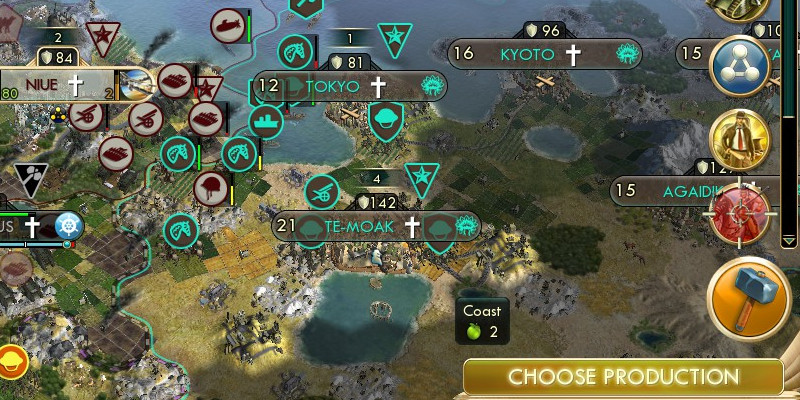Building more cities is especially helpful because each city works its home tile for free. What's the reason for these free resources? It's mostly because of the way population growth works. Surplus food is accumulated in a meter, and when the meter is full, a new population unit appears and the meter is reset.
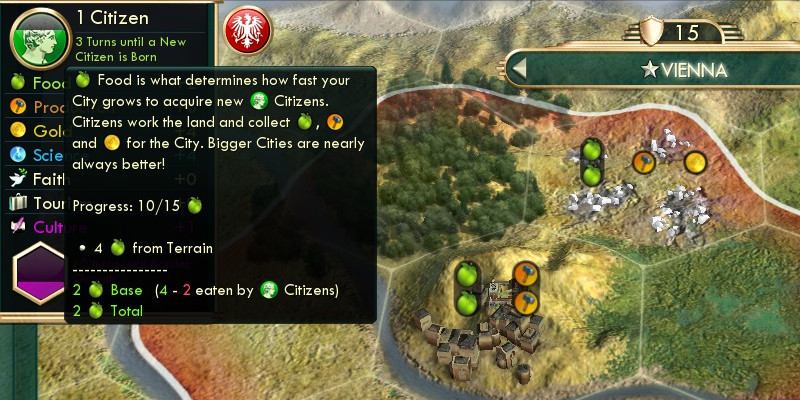
The meter becomes bigger with each subsequent population unit. Because of the free resources from the home tile, the city starts out with a modest food surplus, but this surplus does not grow along with the city population. As a result, cities grow quickly at first, and then more slowly.
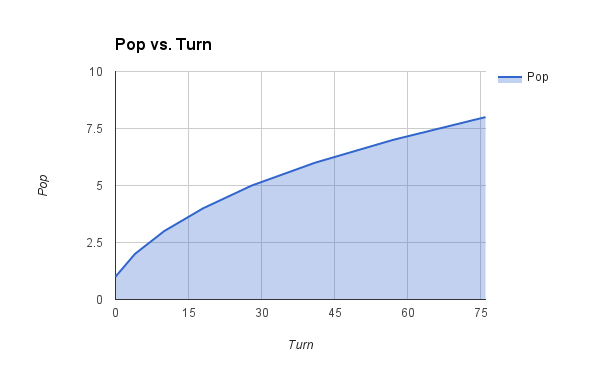
Civ V growth curve for a 4 food surplus
This is intended as a balancing mechanic. Over time, small cities will catch up and large cities will grow more slowly. But it also makes founding cities even more useful because it boosts your population growth. Because founding cities is so profitable, you need to do a lot of it to play the game well, which means that your end-game gets very slow.
Fixing this problem at the root means changing the way founding a city is rewarded. Successive versions of Civ have attempted to fix things by adding additional systems to punish the player for founding too many cities. In Civ V, each city you found slows down research and cultural growth. And more importantly, each new city is a massive hit to your global happiness levels. If happiness goes negative by even one point, population growth is reduced by 75%. This turns playing the game into an exercise in finding happiness sources and carefully calculating how close to the edge you can get without tipping over.
There is a reward for high happiness levels in the form of golden ages, but they doesn't measure up compared to the additional productivity from having more cities and people. As long as each city you found gives you free stuff and a growth boost, the answer to how many you should found will always be "as many as you can possibly get away with".
So there's an obvious solution to this: change the way population growth works. Instead of the surplus food mechanic, start with a base rate of 12% growth per turn. Because of the negative health effects of concentrated populations, reduce growth by 1.5% for each population unit. A city grows to size 2 in 10 turns, and reaches size 8 in 47 turns, at which point its growth rate is zero.
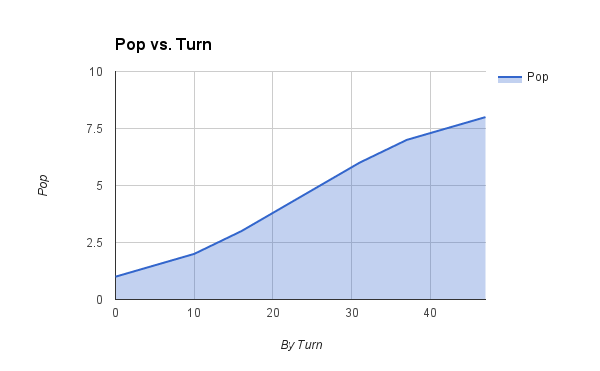
Growth curve with a base rate of 12% and a reduction of 1.5%/pop.
Technology like aequaducts, sewer systems, and medicine can then raise the base rate or lessen the growth reduction from population, allowing cities to grow larger as the game progresses. Depending on how the effect works, this growth bonus can reshape the curve of population over time in different ways: Want to make small cities grow quicker? Raise the base rate. Want to allow large cities to grow bigger? Lessen the growth reduction per population. Want mid-size cities to grow faster? Make the first few population units not reduce growth.
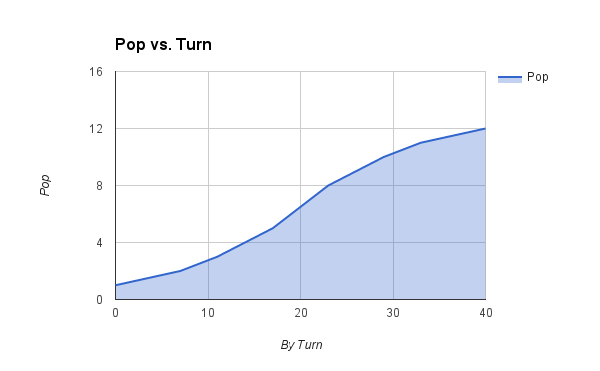
Growth curve with a base rate of 18% and a reduction of 1.5%/pop.
With this growth mechanic, surplus food is no longer so relevant, which means that now, the home tile of the city can be worked by the first population unit: no more free stuff from cities!
But that might not be enough. We're still running into the problem where more cities means more population means more resources means winning. What can we do? Decouple population from productivity. The harsh reality is that for most countries, what determines their power isn't the size of their population as much as their infrastructure, their institutions, and their elites. Take 1840s Russia as an example: its population was 62 million, whereas England and Wales had a mere 16 million. Yet England was a powerful colonial empire while Russia was something of a backwater. Yes, it had land, and people, and natural resources. But it didn't have the infrastructure to exploit and transport its resources, and most of its people were serfs.
If having more people is no longer very useful in and of itself, and cities no longer produce free resources, the motivation for founding as many cities as possible finally goes away.
This actually makes sense: Through most of human history, almost everyone lived outside of cities. For the longest time, large cities were so disastrously unhealthy that they only grew because of constant immigration. People died far more quickly in cities than they were born.
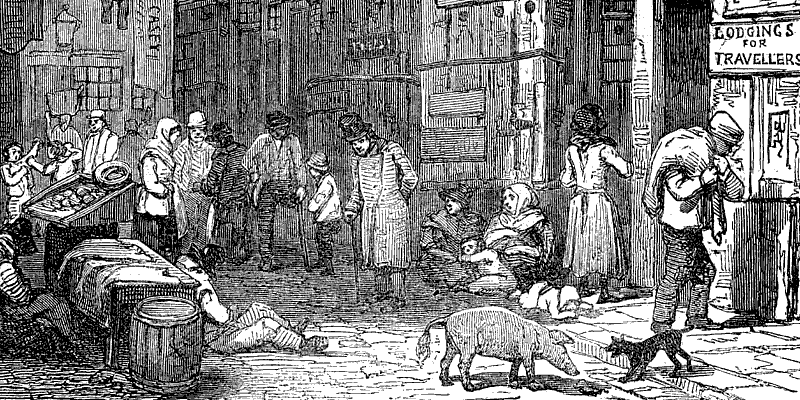
Cities were not centers of population growth, they were engines that consumed population and created "civilization": human bodies turned into commerce, culture, art, science, machinery.
If each city you founded ate up your people and retarded population growth, you would only found cities when needed, for the same reasons that cities were founded historically: to benefit from a trade route, to exploit some local resource, to exert control over a territory, to act as a centre for administration or industrial production.
This way, where to build cities and how to run them becomes a deep strategic consideration rather than a race to fill up the map. Turns remain relatively short and you make fewer, more important decisions. All it takes is a shift in perspective from the kind of shallow Whig History approach Civ games take.
